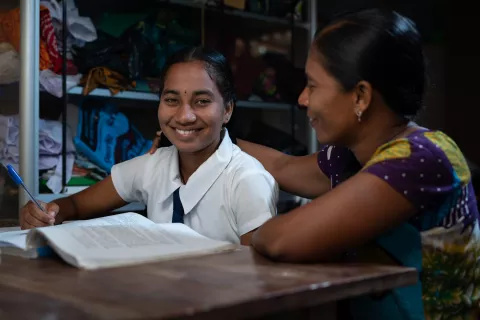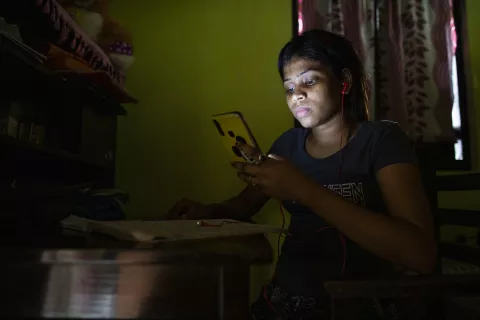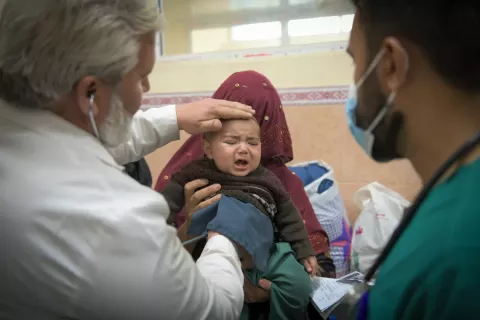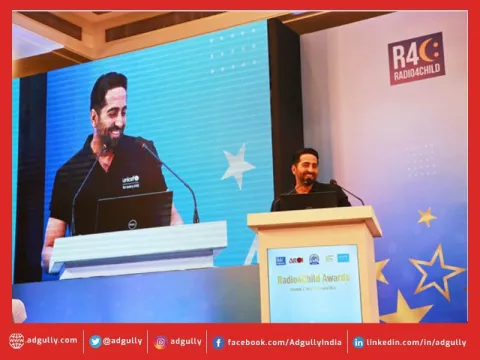13-year-old Kusma’s struggle to become a doctor – not a child bride
Youth Skills in South Asia
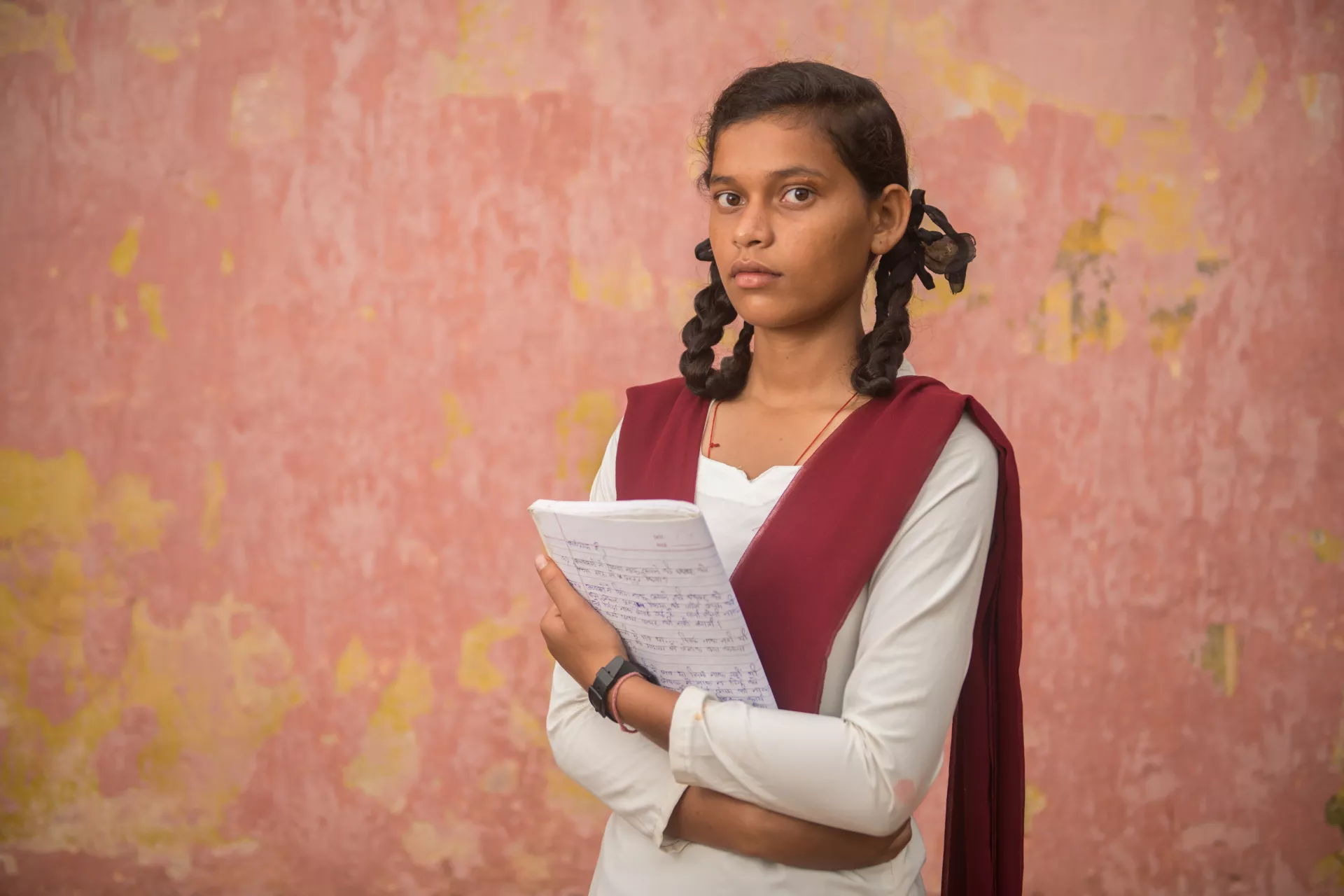
Ranchi, India – 13-year-old Kusma hastens her steps as she walks by her neighbour’s house.
Kusma’s neighbour is a 70-year-old village elder who is well-respected by everyone in the community. Kusma keeps her head down, but she can’t help but notice her neighbour’s hand stretch in front of him. Four long, crooked fingers point toward the sky.
“Last year, he would show me his fingers and his thumb,” Kusma said. “Each finger indicates a year. He means that I have just four more years to study, and then I will have to get married.”
Kusma keeps moving. She doesn’t break her stride until she reaches the schoolyard.
“He is an elder, so I don’t respond,” Kusma said. “But it will never happen. I will not get married. Instead, I will study and become a great doctor.”
Every day, Kusma steels herself to those around her. When questioned about her dream, she bites back with smart answers and probing questions – and sometimes, sharp retorts.
“I have a dream, and no one should stop me,” Kusma said. “Why shouldn’t I be able to become a doctor?”
As she speaks, however, Kusma’s resolve begins to dissipate.
“I don’t know,” Kusma said. “Maybe they will marry me before I become a doctor.”
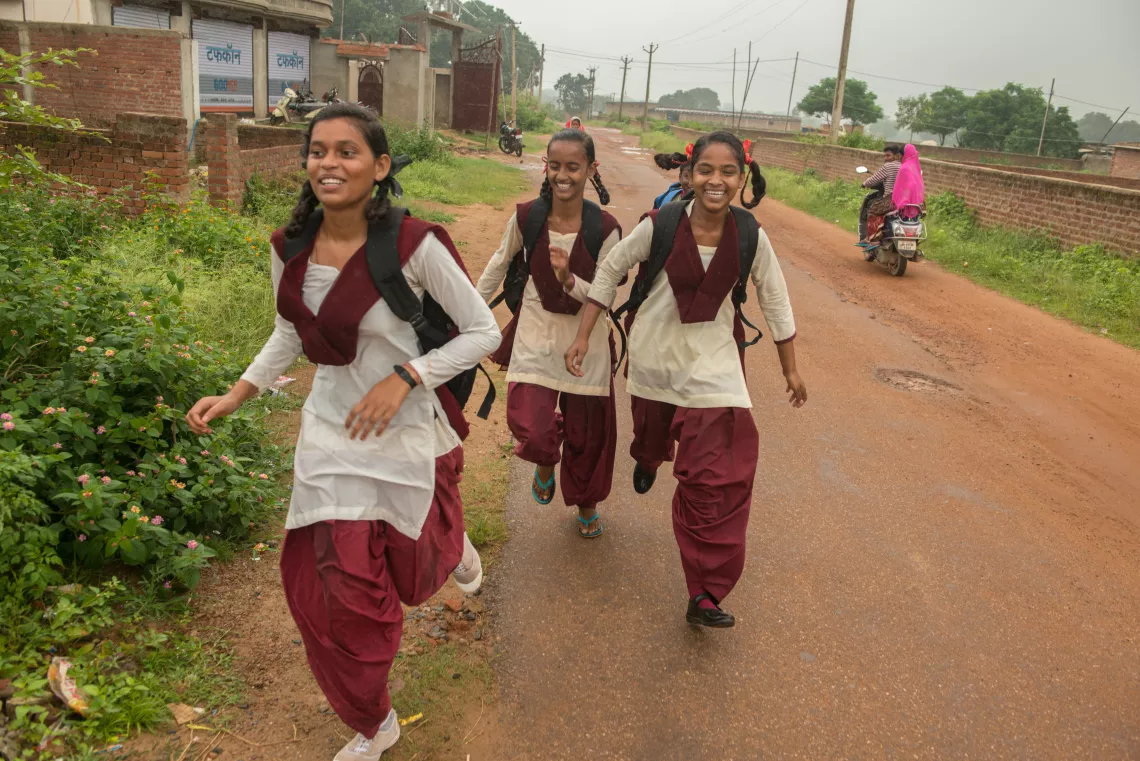
Throughout the day, Kusma’s thoughts swing between the high of becoming a doctor and the low of getting married before she achieves her dream. She sees herself both as a confident young woman treating patients at the hospital, and a young mother cooking food for her children and in-laws.
Kusma’s confidence in becoming a doctor is not misplaced, but neither are her fears of getting married early. Jharkhand, Kusma’s home state, has the third-highest prevalence of child marriage in the country. Though the state has made progress in ending child marriage, close to 38 per cent of girls in the state are still married before they turn 18.
Working hard to achieve her dreams
Every day, Kusma wakes up at 3:30 a.m. She studies while her parents, siblings and neighbours sleep – and when she’s done with that, she writes and paints. Most of Kusma’s work centres around children, and children’s right to fulfil their dreams. Once Kusma arrives at school, she continues along the same vein.
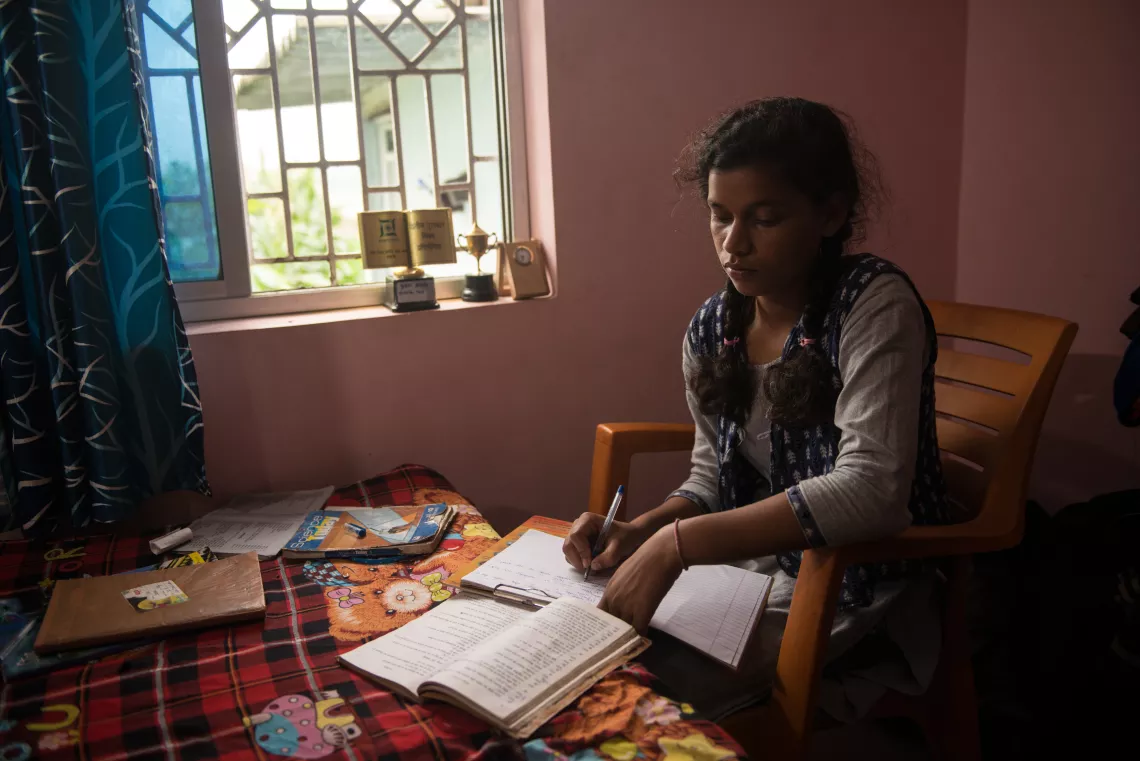
A few months ago, Kusma participated in a UNICEF “child reporter” programme. The experience increased her capacity as a leader both in and out of the classroom. Every day, Kusma conducts the morning assembly for teachers and students, and near the end of each session, she talks about challenges children in her community face. One day, Kusma decided to speak about the topic she fears most: early marriage.
“Child marriage is illegal,” said Kusma, addressing a crowd of children, adolescents and adults. “Even the chef who cooks at a marriage that weds a child will be prosecuted.”
Later, Kusma repeated her speech to those in her community. Kusma and other child reporters speak to fathers, mothers and caregivers deciding on the fate of their children. She has a knack for weaving ideas together – and coupled with her flair, tone and confidence, crowds are often struck by her message. The words flow and so do her thoughts, in unison.
“Don’t marry her young,” Kusma said. “You will be more respected and known in the community if your daughter becomes a doctor.”
The battle against her family – and the fight against time
On this particular day, Kusma’s father, Mahto, listens as his daughter speaks. Mahto beams with pride as Kusma addresses the crowd.
“Kusma has become confident,” Mahto said. “I will make sure she isn’t married as a child – we will not marry her before she is 20. She will study as long as she likes.”
Beside him, Kusma’s mother nods in agreement. But Kusma, on her father’s other side, interrupts.
“I can’t become a doctor at 20,” Kusma said. “I need more time.”
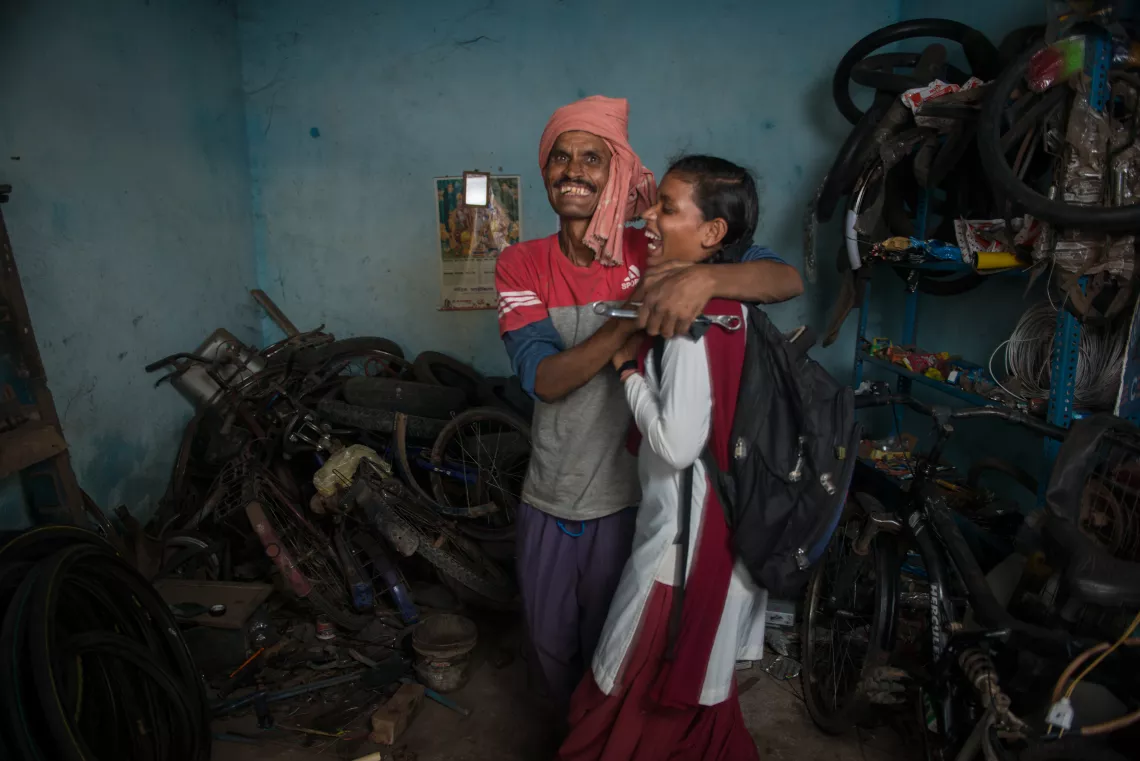
Mahto repeats that he won’t marry Kusma before she is 18 but remains wary on extending that promise beyond 20.
“Baba loves us, but he got my sister married at 20,” Kusma said. “She was a good student. At that time, father was not keeping well, and he cited that reason to marry her early. He will do the same with me too.”
Mahto is a local mechanic, repairing bicycles and, as of late, motorcycles. Because of this, his income has increased from $1 to $2.80 a day. Kusma’s mother works as a cook in the government school where Kusma studies. Even with two incomes, the family is still one of many struggling to get by.
“Girls are considered a liability and parents want to get them married as early as possible,” said Kusma’s sister, Kanta.
“This is why girls should be provided with skills in school, which would give us the ability to decide our own future,” Kusma said. “These skills are important because it would give us confidence and can help us defer marriage if we can support our parents financially.”
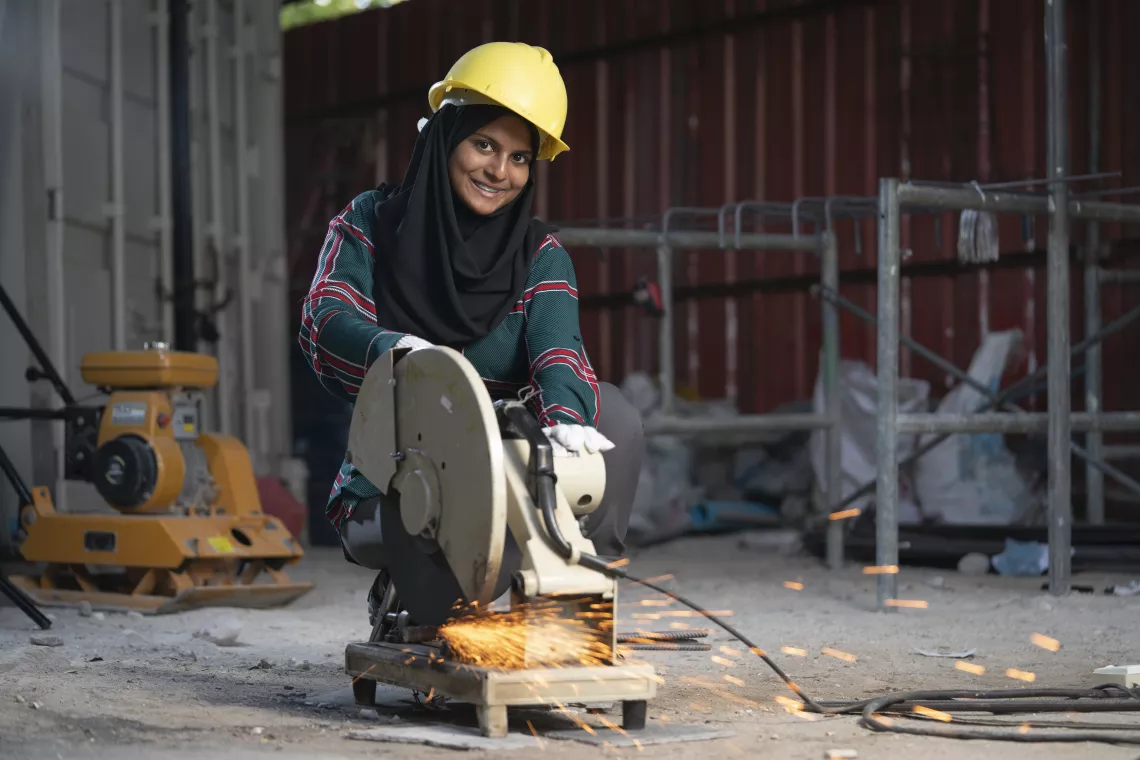
The way forward
Though the power of learning is undeniable, for girls like Kusma, attaining a quality education can be nearly impossible. Schools throughout India and the world often lack the resources to help students succeed in the classroom – especially when those students are girls.
“There are no computers or computer teachers in my school,” said Kusma, surrounded by a group of friends. “As a result, we do not have access to the information and knowledge available online or on websites. I also need to know how I can become a doctor. The school should provide us with information on the scholarships that are available for us. We should be taught computers at school to help us file application forms. I get ashamed at the government offices when I cannot complete the online application on the computer.”
Kusma is also worried about learning English. Though she feels she needs to learn English to become a doctor, all subjects in her school are taught in Hindi. After Kusma speaks, her friends whisper to her. The sun was setting, and it was time to go home.
“Boys get the freedom to do everything and also stay out late,” Kusma said. “We don’t. Why can’t we live as freely as them? I want to live with all the freedom in the world to achieve my dreams.”
Kusma escorts her friends to the bus stop, her father in tow alongside. Throughout the walk, she pushes her father for promises – both to keep her in school and to avoid marriage.
“I just want to become a doctor,” Kusma said. “Why wouldn’t I be able to?”

